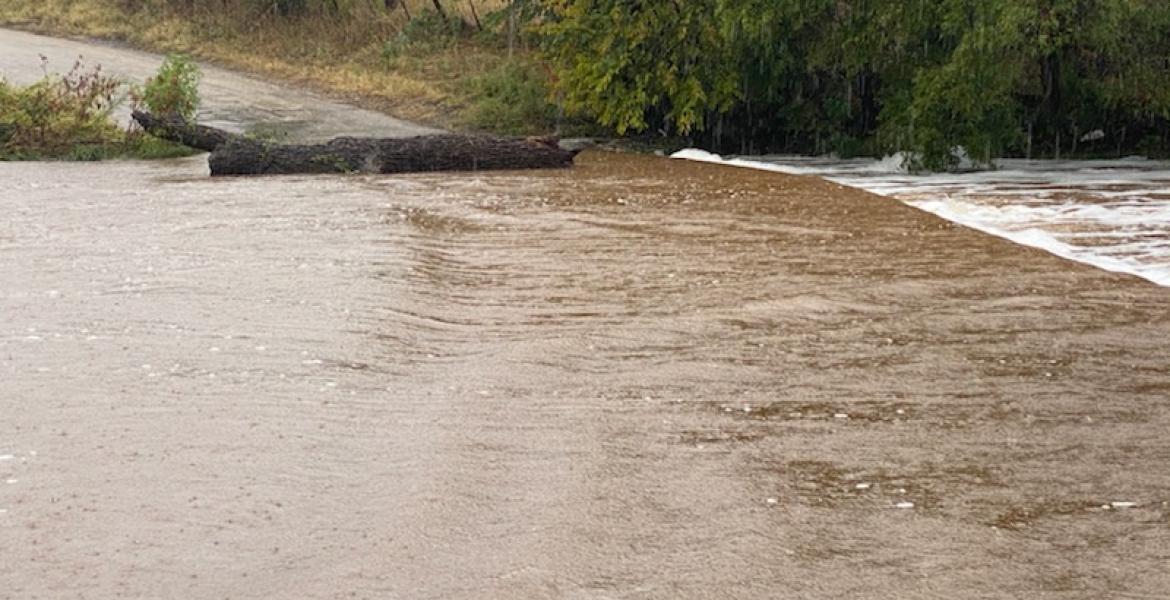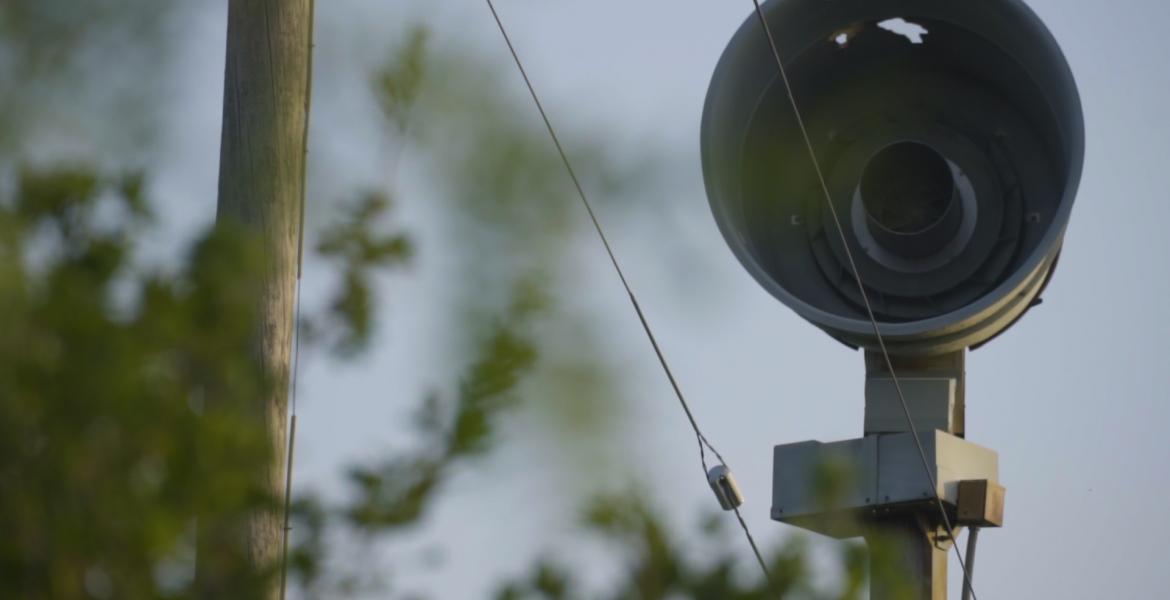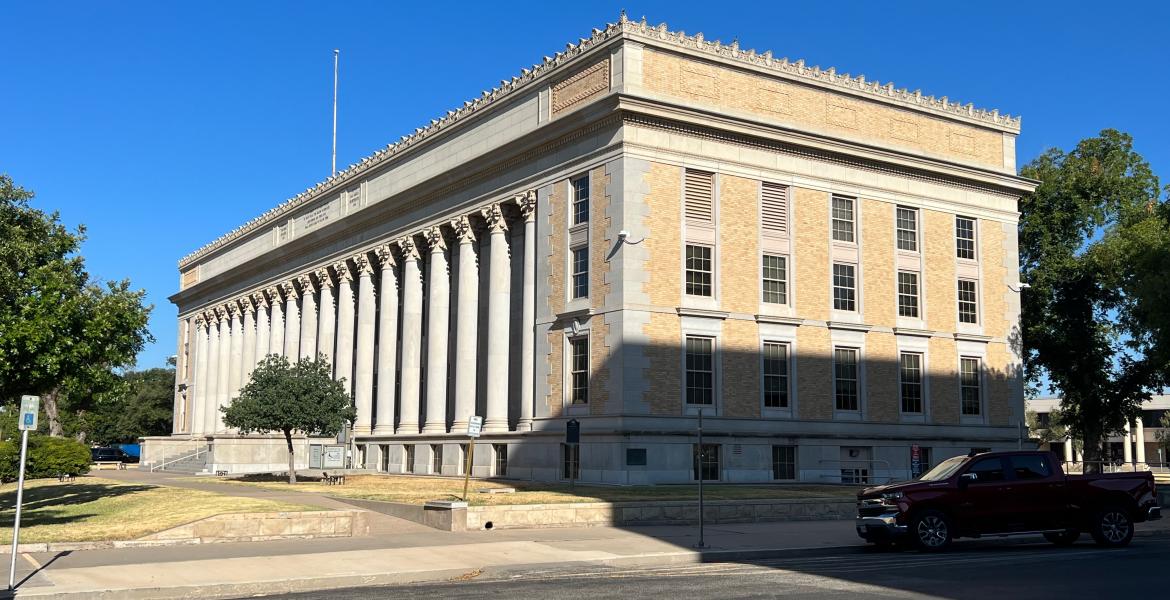With less than 15 months of water remaining before the City of San Angelo is bone dry, City officials are asking to explore other options with the resources available, namely an evaluation of how to most beneficially reuse potable and non-potable wastewater.
At the heart of the issue is a running contract between the City of San Angelo and the Tom Green County Water Control Improvement District #1, also known as the irrigation district.
Currently, all of the City’s wastewater is pumped through irrigation canals to the district and used to irrigate farmers’ crops outside the city limits. The irrigation district lays claim to 25,000 acre feet of water annually, and in exchange is to provide the City with an equal amount of water from Twin Buttes. With a lack of water in the Twin Buttes Reservoir, the City has not been receiving any water in exchange for that which is being pumped out, however the agreement does not require any sort of monetary compensation at any point, even under these circumstances. Further, the City is still required to supply the wastewater to the irrigation district.
“When the agreement was established—I think in ’97—the irrigation district had to build physical improvements to their canal system, and the city had to build…a pipeline to move the water to the irrigation district, so both entities had to build facilities,” City of San Angelo Water Utilities Assistant Director Kevin Krueger explained. “After that, the only thing in the agreement is a trade off of water, there’s no purchase of water from us…”
Obviously, that deal works best when the City is able to receive water from Twin Buttes as well, Krueger said. However, Krueger and several City and Council members described the agreement as mutually beneficial in ideal conditions, as the use of wastewater is ideal for farming and fertilization, and an exchange for good water benefits the City.
“It’s good for everybody, because it brings farmers into the community, because you’ve got farmers who are successful in our county who come into San Angelo and do business here,” Assistant City Manager Rick Weise said. “It’s good for everybody if the farmers make a good crop because it brings revenue into your economy.”
But with lakes and rivers rapidly drying up, City staff are now considering looking into options for reusing wastewater within city limits. At Tuesday’s City Council meeting, Krueger presented the staff’s selection for an entity to conduct a study on wastewater reuse costs and options, namely Alan Plummer Associates, Inc.
The City of San Angelo’s current agreement with the irrigation district has been renewed in recent years and has a little less than 50 remaining. Should the City decided to use the wastewater, an anulment or amendment to that agreement would be necessary, and currently there is a stipulation that one-year’s notice be given prior to termination.
With that in mind, Councilwoman Charlotte Farmer asked if it would not be more sensible to go ahead and give notice, to allow time for exploring other options and to be able to implement any changes as soon as possible. She noted that prices are sure to change as time progresses.
“What we would like to do in this study is look at all of the alternatives,” Krueger explained. “If we begin to look at using wastewater in different means, you’re going to be looking at additional treatment required, you’re going to be looking at additional costs. So we would like to look at what those costs are going to be and what the alternatives all are, so that we can at least have an idea of the costs and come to you and say, ‘This is some projects that are available, and these are the approximate costs of those projects.’”
Presently, the water being used for irrigation is treated type one. There are two treatment types in the state of Texas that dictate how that water may be used, Krueger explained, and the level of treatment the water is receiving is not permissible for use in areas with high levels of public contact.
“Currently, the water that’s being provided to the irrigation district is being treated through a wastewater treatment plant,” Krueger said. “It didn’t take any special or additional treatment back when we first started providing water to the district. In order to move to the next step, it’s going to require additional treatment units—the building itself to treat the water. “
The issue is one of public health and public safety. Farmers are allowed to use the wastewater on a specific class of crops that are not directly consumed, excluding things like produce. The City, therefore, could not immediately begin irrigating parks and cemeteries with the wastewater, as it would pose a public health risk.
“If that’s one of the things they’d like for us to look at, we can certainly look at that,” Krueger said, referencing building facilities capable of treating the water to a higher standard. “We haven’t even begun to speak to the consultant about the scope of the services.”
While most Council members seemed to be on board with the study after hearing more about it, Councilman Don Vardeman was still skeptical about paying for the study.
“I have no problem looking into it, but to me, if it comes down to it, I’m not really going to be for spending money on a consultant to tell us what we can do, when basically, we’ve got the water already spoken for,” he said. “Hopefully, one of these days our lakes are going to fill up. When that happens, we’re still going to be committed to that water.”
Councilman Wardlaw was also hesitant to approve for similar reasons. In response, Water Utilities Director Ricky Dickson stressed the importance of looking for solutions as a precautionary measure.
“I think it’s prudent we look at this as this drought continues and water becomes more and more scarce,” Dickson stressed to the Council. “I think that we have a pretty substantial amount of water out here that could be used for our citizens. I don’t discount what we’re doing now and it’s a pretty good deal for us…but it may get to the point that we need this water for drinking water…”
Following a clarification of the next steps to get the study going, Council approved the selection of Alan Plummer Associates, Inc. as the entity to conduct the study, with five in favor and Wardlaw opposed.
City staff will now work with the company to determine the scope of the study and what is to be included, and will then negotiate a price to be presented to Council for approval at a future meeting.
Subscribe to the LIVE! Daily
Required






Comments
- Log in or register to post comments
PermalinkListed By: Michael Wilkins
- Log in or register to post comments
PermalinkListed By: Bill Richardson
- Log in or register to post comments
PermalinkListed By: Bill Richardson
- Log in or register to post comments
PermalinkListed By: Julio Saldana
- Log in or register to post comments
PermalinkListed By: Joe Blow
- Log in or register to post comments
PermalinkPost a comment to this article here: